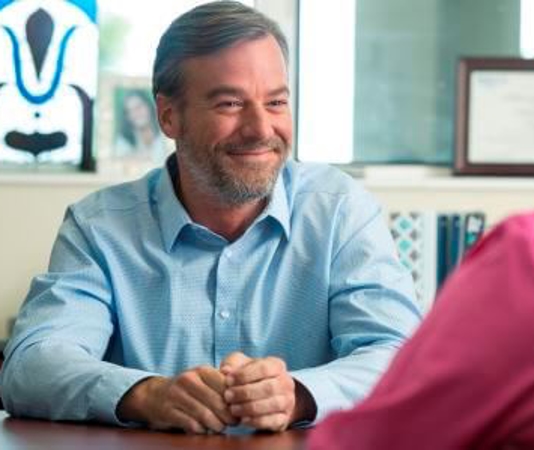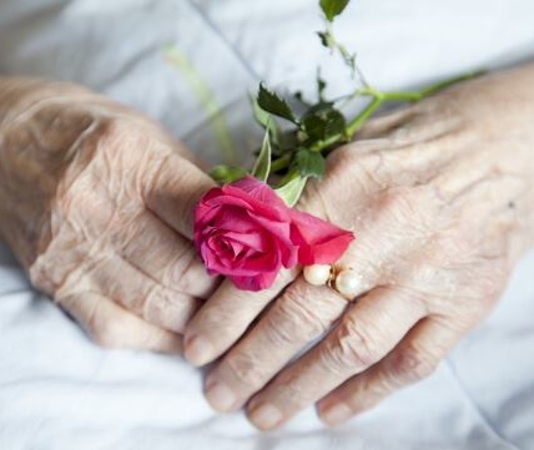November is National Family Caregivers Awareness Month. The National Alliance for Caregiving and the AARP Public Policy Institute released the “Caregiving in the U.S. 2015” study and found that there are an estimate 43.5 million adults in America who have provided unpaid care to an adult or child in the 12 months prior to the study. The majority of those, 39.8 million, were caring for another adult.
Who are all these caregivers? They are men and women helping parents, siblings, spouses, and other loved ones who, because of age or illness, require assistance with daily activities.
Meet some family caregivers who did not plan for caregiving, but nonetheless have had it alter their lives.
Dan Drayer, 48, former radio host and PR professional, who relocated from Colorado to North Carolina, to be near his elder parents after his sister’s death. After his move, he worked as a restaurant manager until he settled into a new career as Major Gifts Officer at Davidson College.
Depending how you define caregiver, I've been directly helping my parents with long-term decisions about independent living and the move to a senior living community since 2010. I left Colorado in early 2015 to relocate in the same town where they live. They were reluctant, as anyone would be, to leave the home they built on Lake Norman to move. We had many conversations about it, how it was important that they move to the independent living component while they were still healthy, so they could enjoy their lives in a supportive environment. I'm lucky and pleased to say that they love it. They have many friends, they go to concerts and lectures at Davidson College, they have dining companions practically every night. They use the swimming classes. Their social life is more active than mine! I'm here for their remaining days so we can enjoy the gift of our time together. I check on them 2-3 times a week. I join them for a meal once a week at their dining hall. When Dad needed to go to the emergency room for what turned out to be a minor thing, I was here to take him. Their needs are well met for now and they are able to tend to themselves. That will change down the road. I'll be more active in their immediate care needs once we reach that point. I lived in Colorado for nearly 20 years. I love it there and it was not an easy decision to move here, especially without a job. I grew up in NC but it's been quite a while since I lived here. My sister died last year and that also played a part in my decision. Her death reminded me of the brevity of life and the importance for me of enjoying my parents' healthful days in geographic proximity and having the privilege of being a support for one or both of them when that changes. I have no regrets. My parents won't always be here, and I'm so grateful to have the privilege of sharing what I hope will be many wonderful days ahead, while knowing that I'm here to assist for any emergencies or more intense caregiving, as needed.
Linda Stone, 61, an employee benefits analyst in Houston, TX, cares for her husband who had a traumatic brain injury 13 years ago.
I have been caregiving for 13 years and one of the most valuable things I have learned is that you must take care of yourself. It is hard to do because this life is a lonely one. Even if you take just 10 minutes to read for a while, it is self-care. This helps me get lost in someone else’s world. It is definitely a way to energize your mind and clear out some of the cobwebs. I also write poetry as a way to express my feelings about being a caregiver.
George Veomett, 71, a retired biology professor who taught at the University of Nebraska in Lincoln until retiring in Portland, Oregon in 2008.
I am the "caregiver" or as I like to say, care partner, for my wife who has had Parkinson's disease for 18 years, is in the 6th year of remission from lymphoma and presently has a broken right arm. I think the most challenging aspect is not getting overcome with demands or requests to the extent that I seem angry or mad about fulfilling them. Sometimes those demands/requests seem to accumulate like the proverbial straw on the camel's back; individually they are nothing, but together they seem heavy. The most rewarding thing is getting to move through all the demands and changes to celebrate our lives the way we've done throughout our married life. For example, last weekend we went out to dinner and a concert as we used to do when we were young and carefree; now we were old and carefree. I also find it very rewarding, as does my wife, to be involved in the World Parkinson Coalition. We’re very excited to be attending the organization’s 4th World Parkinson Congress on September 20-23, 2016 in our hometown. I help with the program committee and advocate for Parkinson’s disease, and most importantly, I get to be in contact with other caregivers and share mutual support, as well as meet with scientists and researchers and other people with Parkinson’s disease. I’ve learned that PD is more than just mobility issues, it’s about sleep and cognitive issues too. And I get to learn about treatment research and the latest in PD management and caregiving. It’s all very exciting and we’re glad to be part of it.





